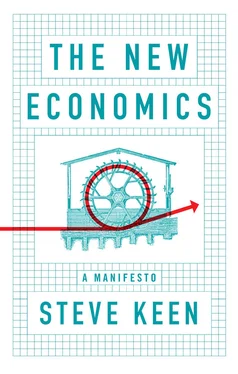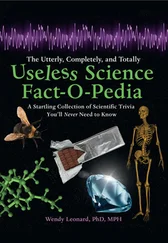The US economy recovered very slowly, under the influence of an unprecedented range of government interventions, from the ‘Cash for Clunkers’ scheme that encouraged consumers to dump old cars and buy new ones, to ‘Quantitative Easing’, where the Federal Reserve purchased a trillion-dollars-worth of bonds from the financial sector every year, in an attempt to stimulate the economy by making the wealthy wealthier.
The crisis, and the sluggish recovery from it, surprised both the economists who advise governments on economic policy, and the academics who develop the theories and write the textbooks that train new economists. Not only had they expected a continuation of the boom conditions that had preceded the crisis, they in fact believed that crises could not occur .
In his Presidential Address to the American Economic Association in January 2003, Nobel Prize winner Robert Lucas declared that crises like the Great Depression could never occur again, because ‘Macroeconomics … has succeeded: Its central problem of depression prevention has been solved, for all practical purposes, and has in fact been solved for many decades ’ (Lucas 2003, p. 1). Just two months before the crisis began, the Chief Economist of the Organization for Economic Cooperation and Development (OECD), the world’s premier economic policy body, declared that ‘ the current economic situation is in many ways better than what we have experienced in years ’, and predicted that in 2008, ‘sustained growth in OECD economies would be underpinned by strong job creation and falling unemployment’ (Cotis 2007, p. 7, emphasis added). In the depths of the crisis, George W. Bush’s Chief Economic Advisor Edward Lazear argued that, because the downturn had been so deep, the recovery would be very strong (Lazear and Marron 2009, Chart 1-9, p. 54). He was bitterly disappointed by the actual outcome, which was the slowest recovery from an economic crisis since the Great Depression itself.
How could economists be so wrong about the economy?
They could be excused their failure to see the Great Recession coming if the crisis were something like Covid-19, when a new pathogen suddenly emerged out of China. As long ago as 1995, Laurie Garrett declared that such a plague was inevitable (Garrett 1995). But predicting when the pathogen would emerge, let alone what its characteristics would be, was clearly impossible. However, the epicentre of the Great Recession was the US financial system itself: the crisis came from inside the economy, rather than from outside. Surely there were warning signs? As Queen Elizabeth herself put it when she attended a briefing at the London School of Economics in 2008, ‘If these things were so large, how come everyone missed them?’ (Greenhill 2008).
Not all economists did: there were some who warned that a crisis was not merely likely, but imminent. The Dutch economist Dirk Bezemer identified a dozen, of whom I was one (Bezemer 2009a, 2009b, 2010; Keen 1995, 2007). Though these economists came from disparate backgrounds, Bezemer noted that they had one negative characteristic in common: ‘no one predicted the crisis on the basis of a neo-classical framework’ (Bezemer 2010, p. 678).
One would expect that the failure by economists to anticipate the biggest economic event of the post-Second World War world would cause economics to change dramatically. But it hasn’t. What Bezemer called ‘Neoclassical economics’ was the dominant approach to modelling the economy before the GFC, and it has remained dominant since. 1
The failure of economics to reform itself after such a profound empirical failure has led to strong criticism of economics from within – even by economists who have been awarded the Nobel Prize in Economics. Robert Solow, the 1987 recipient, told a United States Congressional Hearing into economics in 2010 that:
We are in desperate need of jobs, and the approach to macroeconomics that dominates the elite universities of the country and many central banks and other influential policy circles, that approach seems to have essentially nothing to say about the problem. (Solow 2010, p. 12)
Paul Romer, who received the Prize in 2018, argued in 2016 that economics had such a ‘noncommittal relationship with the truth’ that it deserved the label of ‘post-real’ (Romer 2016, p. 5).
These criticisms of Neoclassical economics by prominent Neoclassical economists echo criticisms that economists from other schools of thought have been making for many decades. These rival approaches to economics are very different to the specializations that exist in sciences like physics. Some physicists specialize in General Relativity, others in Quantum Mechanics, Statistical Mechanics, Newtonian physics, and so on. Each of these approaches has different perspectives on how the Universe operates, but each works very well in its respective domain: General Relativity in the realm of the very large (the Universe), Quantum Mechanics in the realm of the very small (the atom), while Newton’s equations work very well in between, and so on.
But in economics, different schools of thought have visions of how the economy works that are fundamentally in conflict. There is no way to partition the economy into sections where Neoclassical economics applies and others where rival schools of thought like Post Keynesian, Austrian or Biophysical economics apply. On the same topic – say, for example, the role of private debt in causing financial crises – these schools of thought will often have answers that flatly contradict Neoclassical economics, and frequently also, each other. These non-mainstream schools of thought, which are collectively known as ‘heterodox’ economics, are followed by a significant minority of academic economists – as many as 10 per cent of the discipline, going on a campaign in France in 2015 to establish a separate classification there (Lavoie 2015b; Orléan 2015). 2
The economists who did warn of the Global Financial Crisis came almost exclusively from these dissenting schools of thought. 3Though they differed from each other in significant ways, Bezemer noted that they shared ‘a concern with financial assets as distinct from real-sector assets, with the credit flows that finance both forms of wealth, with the debt growth accompanying growth in financial wealth, and with the accounting relation between the financial and real economy’ (Bezemer 2010, p. 678).
If you haven’t yet studied economics, or you’re in your early days of doing so at school or university, I hope this gives you pause: shouldn’t mainstream economics also concern itself with finance and debt? Surely they are essential features of the economy? Au contraire , the mainstream long ago convinced itself that even money doesn’t really affect the economy, and hence monetary phenomena – including money, banks and private debt – are omitted from Neoclassical models. One Neoclassical economist put it this way on Twitter:
Most people who teach macro do it by leading people through simple models without money, so they understand exchange and production and trade, international and inter-temporal. You can even do banks without money [yes!]. And it’s better to start there. Then later, study money as it superimposes itself and complicates things, giving rise to inflation, exchange rates, business cycles.
This statement was made in late 2020 – a dozen years after the failure of Neoclassical models to anticipate the crisis.
Why didn’t mainstream economists change their beliefs about the significance of money in economics after their failure in 2007? Here, paradoxically, economics is little different to physics, in that significant change in physics does not , in general, occur because adherents of an old way of thinking are convinced to abandon it by an experiment whose results contradict their theory. Instead, these adherents continue to cling to their theory, despite the experimental evidence it has failed. Humans, it appears, are more wedded to their beliefs about reality – their ‘paradigms’, to use Thomas Kuhn’s famous phrase (Kuhn 1970) – than reality itself. Science changed, not because these scientists changed their minds, but because they were replaced by new scientists who accepted the new way of thinking. As Max Planck put it:
Читать дальше












